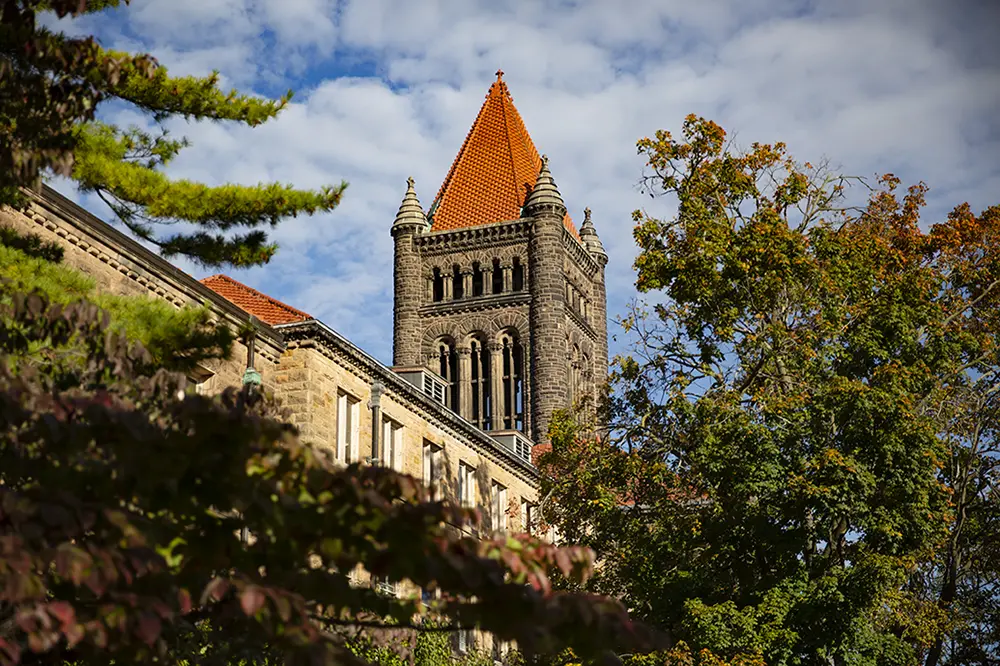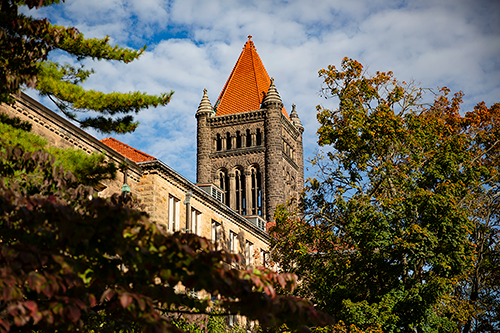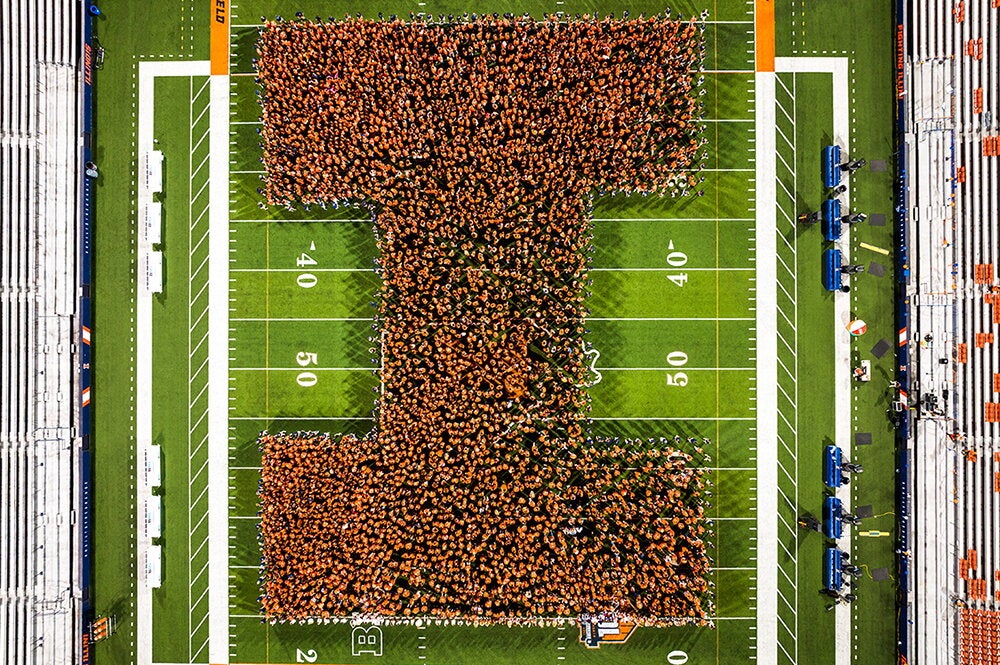

The National Science Foundation (NSF) has awarded $15.5 million to four universities in Illinois, including the University of Illinois at Urbana-Champaign, to create an institute to bring powerful mathematical ideas to bear on key contemporary scientific and technological challenges.
Researchers at the new Institute for Mathematical and Statistical Innovation (IMSI), which will be hosted by the University of Chicago, will build a platform that accelerates the translation of applied mathematical and statistical techniques into solutions for urgent scientific and societal problems. Many of these problems arise naturally in a range of fields already being studied across the four partner institutions, including climate change, health care, quantum information theory, artificial intelligence, data science, economics, and materials science.
In addition to the University of Illinois at Urbana-Champaign, IMSI will include a collaborative group of mathematicians and statisticians from the University of Chicago, Northwestern University, and the University of Illinois at Chicago. The $15.5 million grant will be provided by NSF over five years.
“The IMSI project is a powerful investment by the National Science Foundation in four great universities and in the state of Illinois,” said Matt Ando, associate dean for life and physical sciences at the College of LAS, who played a key role in forming the institute. “It puts the state and these universities in a position of national leadership in bringing mathematical and statistical research to bear on pressing societal challenges and in training the next generation of mathematicians and statisticians to collaborate with their colleagues across the academy and in business, industry, and government.”
The current complex environment of science and engineering research involves a deep interaction of multiple disciplines to address scientific problems. These interactions, which are often at very large scales, need sophisticated mathematical and statistical approaches that underpin solutions to the scientific problems. While enabling these applied mathematical approaches, IMSI will benefit from the institutional strengths of each of its university partners, both in the mathematical sciences as well as in the particular application areas of science, technology, economics, and policy, drawing from the deep programmatic expertise of a network of centers and research groups.
Ando said that the effort to bring IMSI to campus benefitted from support across the campus. Faculty and staff in LAS, the Grainger College of Engineering, and the Carl R. Woese Institute for Genomic Biology contributed valuable ideas. The Office of Proposal Development and the staff of the Discovery Partners Institute provided essential on-going support, and the leadership of the campus provided invaluable advice and support at multiple critical junctures throughout the development of the proposal.
“The project builds on the leadership of the University of Illinois at Urbana-Champaign and of the College of Liberal Arts and Sciences,” Ando said. “The university’s outstanding record of success with interdisciplinary institutes, such as the Beckman Institute and the Carl R. Woese Institute for Genomic Biology, and the innovative record of the departments of Mathematics and Statistics in workforce development, in collaboration with the University of Illinois Research Park, were important strengths of the proposal.”
Doug Simpson, professor of statistics, has been named associate director of IMSI. Kevin Corlette, professor of mathematics at the University of Chicago and inaugural director of IMSI, said that there are many ways in which the mathematical sciences can help society come to grips with the massive growth in the amount of available data describing complex systems, as well as with the complex uses of computing now used to extract meaning from these data.
“These include methods for evaluating the quality of data sets, simplification of models to improve their predictive power and their ability to provide insight into underlying principles, and new approaches to estimating the uncertainty of results predicted by models,” he said. “IMSI will be a vehicle for sustained engagement between mathematical scientists and researchers in a wide range of disciplines on these kinds of questions.”
IMSI will operate through a partnership among the four research universities. The University of Illinois at Urbana-Champaign and the University of Illinois at Chicago both bring unique and deep expertise in a range of math and engineering disciplines and extend the institute’s reach to a much broader population of students. The University of Chicago will leverage the world-class academic resources on campus, its affiliations with Argonne National Laboratory, Fermilab, and the Marine Biological Laboratory, and its physical proximity to the Toyota Technological Institute. Northwestern’s strengths in both theoretical and applied sciences will boost the Institute’s intellectual and vocational reach.
IMSI will bring together researchers in application areas from across the nation and around the globe. Scientific activity will include workshops and long programs, typically a quarter (10 weeks) in length. Research activity will be organized around themes that will evolve over time, with an initial focus on data and information, climate science, health care, material science, quantum computing and information, and uncertainty quantification.
There will also be a sustained focus on communication with researchers in other fields, and in educating the public about the broad utility of mathematics and statistics to everyday problems and social issues. IMSI will sponsor outreach and workforce development programs aimed at K-12 students, teachers, undergraduates, and graduate students to introduce participants to career opportunities in mathematics and statistics, especially those from communities traditionally underrepresented in the sciences.
“The influence of mathematical sciences on our daily lives is all around us and far-reaching,” said Juan C. Meza, division director of mathematical sciences at the NSF. “This program represents an investment in interdisciplinary connections across fields of science, and with impacts across sectors like computing, engineering, and health.”


